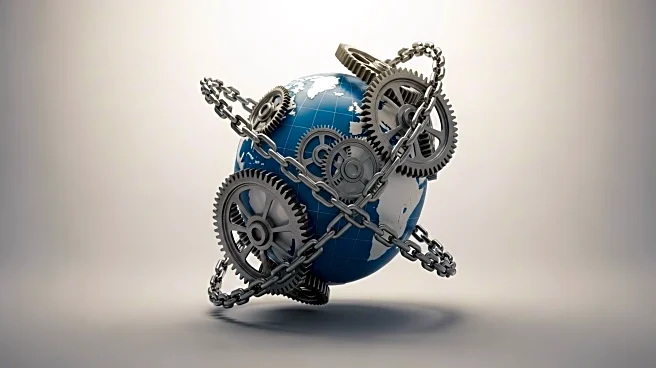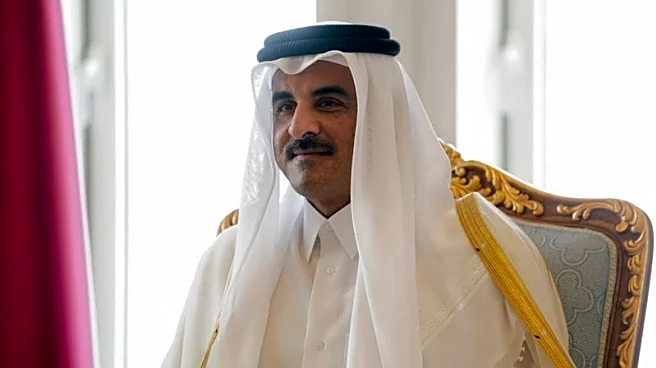What is the story about?
What's Happening?
Indonesia experienced its slowest export growth in four months during August, as reported by official data. This slowdown is attributed to the tariffs imposed by President Trump, which took effect in August. Indonesian exports rose by 5.78% compared to the previous year, reaching $24.96 billion, slightly surpassing the 5.5% growth forecast by economists. Exporters had accelerated shipments to the United States to avoid the tariff deadline, which temporarily boosted the trade surplus before the tariffs were implemented on August 7. The United States, a significant market for Indonesian exports, imposed a 19% tariff rate on Indonesian products, aligning with regional peers and lower than the initially proposed 32% rate. Imports in August were valued at $19.47 billion, marking a 6.56% decrease from the previous year, contrary to the predicted 1.6% decline. The trade surplus for August was $5.49 billion, exceeding the forecasted $4.0 billion.
Why It's Important?
The tariffs imposed by President Trump have significant implications for Indonesia's trade dynamics, particularly affecting its export growth to the United States, a major market. The tariffs could lead to increased costs for Indonesian exporters, potentially reducing their competitiveness in the U.S. market. This situation may compel Indonesian businesses to seek alternative markets or adjust their pricing strategies to mitigate the impact of tariffs. The broader economic relationship between the U.S. and Indonesia could be strained, affecting bilateral trade agreements and negotiations. Additionally, the tariffs may influence other countries in the region to reassess their trade policies with the U.S., potentially leading to shifts in regional trade alliances and economic strategies.
What's Next?
Indonesia is expected to release September inflation data and other economic indicators, which may provide further insights into the impact of the tariffs on its economy. Stakeholders, including Indonesian exporters and government officials, will likely monitor these developments closely to assess the long-term effects of the tariffs. There may be discussions or negotiations aimed at reducing tariff rates or finding alternative solutions to support Indonesian exports. The U.S. administration may also face pressure from domestic industries affected by the tariffs, potentially leading to policy adjustments or trade negotiations.
Beyond the Headlines
The imposition of tariffs by President Trump highlights the complexities of international trade relations and the potential for economic protectionism to disrupt established trade patterns. This development may prompt discussions on the ethical implications of using tariffs as a tool for economic leverage, particularly in terms of fairness and equity in global trade. The situation could also lead to increased scrutiny of trade policies and their impact on developing economies, fostering debates on the balance between national interests and global economic cooperation.















